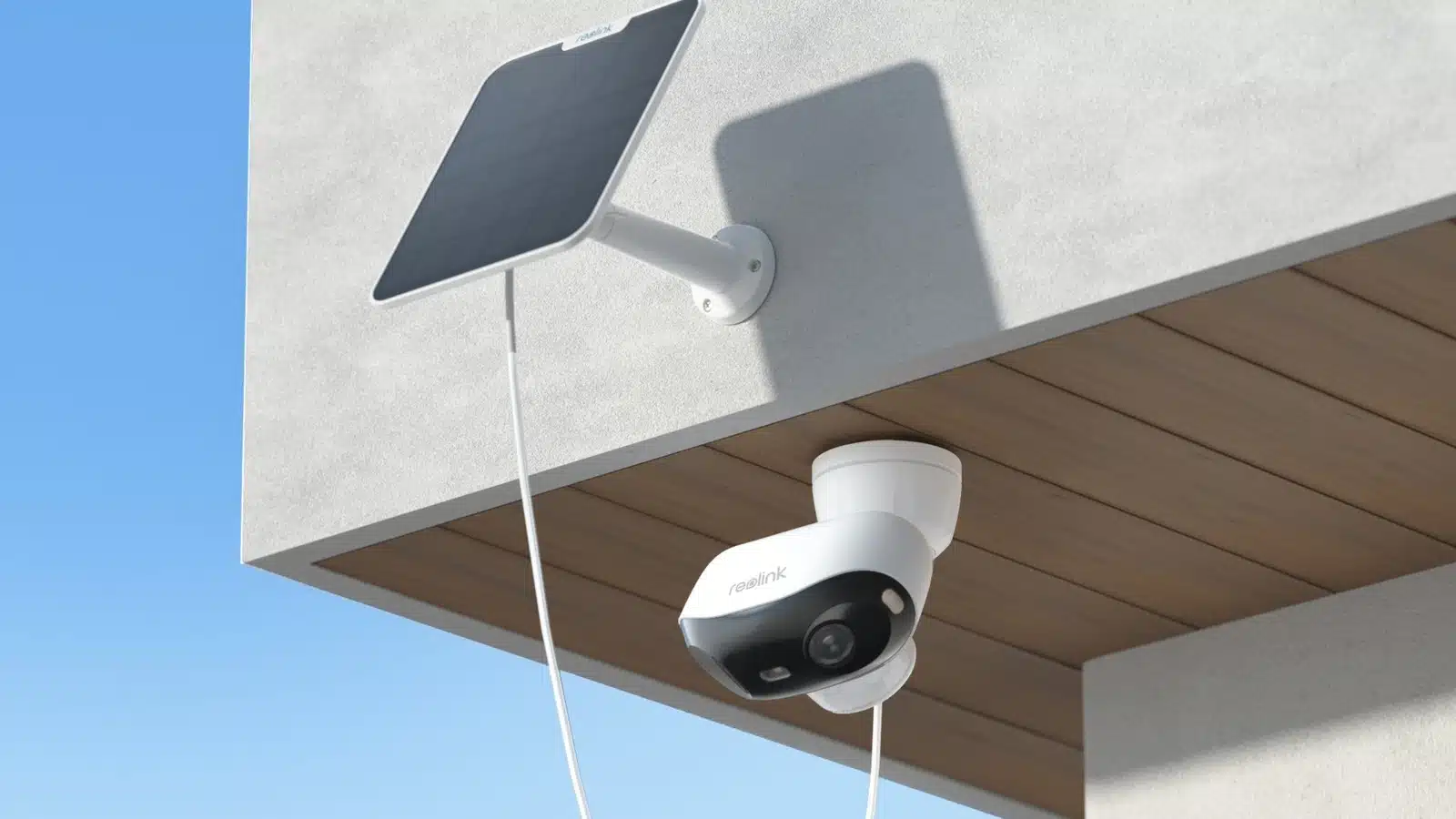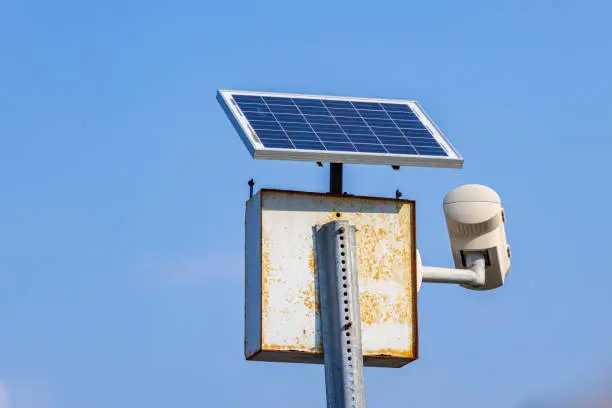As technology advances, solar-powered security cameras have become an integral part of modern home and business security systems. These cameras are environmentally friendly and energy-efficient, making them perfect for areas where electricity is scarce or for remote monitoring. Let’s dive deeper into how solar-powered security cameras work and their pros and cons.
What are Solar-Powered Security Cameras
Solar-powered security cameras harness sunlight using solar panels, converting it into electrical energy stored in built-in rechargeable batteries. These devices are ideal for outdoor settings, continuously monitoring homes or business perimeters.
How It Works
The heart of a solar-powered security camera is its solar panel, which absorbs sunlight during the day and converts it into direct current (DC) through the photovoltaic effect. An in-built inverter then transforms this DC into alternating current (AC), ensuring the camera operates continuously, even on sunny days.
Energy Consumption Analysis
Typical security cameras consume about 4 to 15 watts, depending on their model and features. Solar-powered cameras are designed with this in mind, ensuring high storage and conversion efficiency to support nighttime use with the energy collected during the day.

Technical Details and Innovations of Solar-Powered Security Cameras
Efficient Energy Management: At the core of solar-powered security cameras is their energy management efficiency. Utilizing the latest photovoltaic technology, these cameras are equipped with high-efficiency solar panels that capture more energy even with less sunlight. Additionally, modern cameras incorporate advanced battery management systems to ensure optimal performance throughout their lifespan.
Intelligent Image Processing: Featuring high-resolution sensors and sophisticated image processing algorithms, solar-powered security cameras deliver clear video quality, even in low-light conditions. Some high-end models include machine learning capabilities that automatically detect and alert users to common security threats, such as unusual movements or recognized threat patterns.
Night Vision and Environmental Adaptability: To maintain effective monitoring in low-light conditions or at night, solar-powered cameras are often equipped with infrared night vision technology. This feature allows the cameras to capture clear black-and-white images even in complete darkness. Moreover, these cameras are designed to be waterproof and dustproof, adapting to various external environments to ensure reliability when used outdoors over long periods.
Wireless Communication Capabilities: Most solar-powered security cameras support wireless communication technologies, such as Wi-Fi or LTE, allowing them to be easily integrated into existing home or business networks. Users can access the cameras remotely to view live or recorded footage, no matter where they are.
Scalability and Modular Design: As technology advances, more solar-powered cameras are adopting a modular design, enabling users to add additional cameras or sensors, such as thermal imaging sensors or extra motion detectors, to enhance the functionality and coverage of their monitoring systems.
These technical details not only showcase the maturity and innovation of solar-powered security cameras but also highlight their potential as a sustainable security solution. By adopting these advanced technologies, solar-powered cameras offer an eco-friendly and efficient way to monitor homes and businesses.

The Pros and Cons of Solar-Powered Security Cameras
Solar-powered security cameras, as an emerging security solution, offer more advantages than disadvantages. With technological advancements and decreasing costs, these devices are expected to become increasingly popular. Opting for solar-powered security cameras today means not only securing your property but also contributing to the sustainable development of our planet.
Advantages
Environmentally Friendly:
Solar security cameras utilize solar energy, reducing reliance on traditional power sources and minimizing the carbon footprint. This environmentally friendly approach is in line with the growing global emphasis on sustainable living.
Cost Saving:
One of the biggest advantages of solar security cameras is the potential for cost savings. By utilizing solar power, we can reduce the use of wires and lower monthly utility bills. This makes solar-powered systems an attractive option for budget-conscious homeowners.
Easy to install:
Solar-powered security cameras are usually wireless and require minimal installation work. No complicated wiring is required and users can install the cameras in strategic locations without professional assistance. That’s why many DIY enthusiasts want to buy this kind of surveillance camera because it’s so convenient.
Remote Monitoring:
Many wireless outdoor solar security cameras are equipped with advanced features like remote monitoring and mobile app integration. Users can access live feeds and receive alerts via their smartphones, providing increased security and peace of mind even when away from home.
Disadvantages
Weather Dependency:
One of the main challenges with solar-powered surveillance cameras is their dependence on sunlight. In areas with frequent rainy weather or limited sunlight, the performance of the camera may suffer, which can affect its ability to charge and function optimally. For this reason, most solar-powered cameras are equipped with wires to connect to household electricity.
Initial Cost:
While solar security cameras can save money in the long run, the initial investment can be higher compared to traditional wired systems. The cost of solar panels, batteries, and other components can be prohibitive for budget-conscious consumers, despite the long-term benefits.
Maintenance challenges:
Like most electronics, solar surveillance cameras require regular maintenance to ensure optimal performance. After a period of use, dust, dirt or debris on the solar panel can reduce the efficiency of the camera. Therefore, regular cleaning is required. In addition, batteries may need to be replaced over time, increasing overall maintenance efforts and costs.











